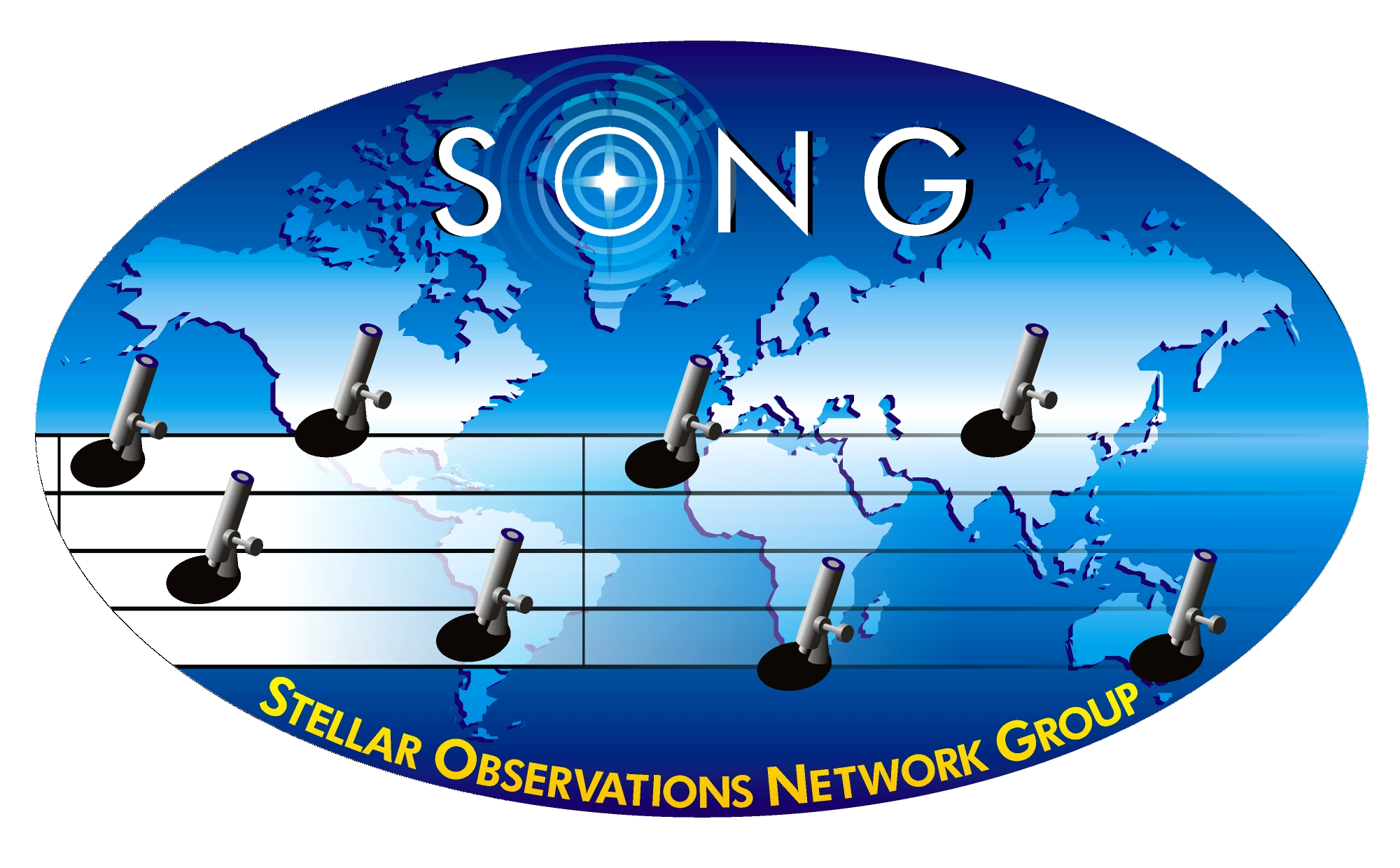Presentation

The SONG24 Workshop "10 Years of Science and the Future with SONG" is dedicated to stellar and exoplanet astrophysics using high-resolution and time-resolved spectroscopy from the Stellar Observation Network Group (SONG) .
The meeting will be held at the IACTEC in La Laguna, Tenerife, Spain. On afternoon of Thursday September 19, workshop attendees will visit the Observatorio del Teide and the Hertzsprung SONG telescope to celebrate the inauguration of the third SONG node in Mt Kent, Australia, the successful re-location of the second SONG node in Lenghu (PPRC), China, and the assembly of the fourth SONG node at Apache Point Observatory, NM, USA.
Thanks to a special budget, we will waive the registration fee for the first fortyfive registered participants and cover the hotel rooms for a number of junior researchers attending the workshop. The conference fee for additional participants will be €150 (convering for lunches, coffee breaks, and conference dinner). For accompaning people the attendance fee will be €30, which includes the trip to Teide Observatory and the conference dinner. More details on the hotel waiver and accompanying person are provided
here
.
Scope of the workshop
This workshop will highlight the research and lessons learned from the first 10 years of operation of the SONG project, including stellar evolution, variability, activity, and abundances, as well as asteroseismology, exoplanet discovery and characterization. The meeting aims to bring together active users, future collaborators, and instrument developers of SONG to discuss strategies for future operations. With three operational nodes and the fourth telescope close to completion, SONG now enters the operations phase as a multi-site facility, allowing for extended, uninterrupted, high-cadence time series. This capability will be integral to expanding the potential of asteroseismology and exoplanet follow-up by providing simultaneous time series in concert with space photometry, such as the NASA TESS or the forthcoming ESA PLATO missions.
We invite the research community to abstracts for oral contributions to this rich spectrum of topics. The workshop is open to anyone in the research community and does not require SONG membership. There will be no conference proceedings. However, the presented abstract will be listed on ADS. The workshop is open to anyone in the research community and does not require SONG membership. There will be no conference proceedings. However, the presented abstract will be listed on ADS.
For inquiries email the LOC at: song24_AT_iac.es
Confirmed intived speakers
-
Mads Fredslund Andersen – Aarhus University, Denmark
-
Megan Bedell – Flat Iron Institute, USA
-
Juan Antonio Belmonte – Instituto de Astrofisica de Canarias, Spain
-
Antonio Eff-Darwich – Universidad de la Laguna, Spain
-
Frank Grundahl – Aarhus University, Denmark
-
Kelly Hambleton – Villanova University, USA
-
May Gade Pedersen – University of Sydney, Australia
-
Hans Kjeldsen – Aarhus University, Denmark
-
Marian Martinez Gonzalez – Instituto de Astropfísica de Canarias, Spain
-
Sergio Simón-Díaz – Instituto de Astrofisica de Canarias, Spain
-
Ditte Slumstrup – European Southern Observatory, Chile
Covered topics
The topics are inclusive and the SOC will try to find the session structure and right spot for talks that seem outside the box of the outlined topics.
-
Status and plans for the SONG Project
-
Stellar structure, evolution, and asteroseismology
-
Exoplanets and their host stars
-
Binary stars, star-star interaction, and their co-evolution
-
Spectroscopic variability, activity, and abundances
-
Solar physics with night-time spectrographs
Acknowledgements: This workshop is supported through a budget by the Spanish Ministry of Science and Innovation and Universidad de la Laguna through Paul Beck’s Ramón y Cajal fellowship (RYC-2021-033137-I, MRR4032204), which allows the organizers to cover the majority of the expenses for this meeting. The infrastructure and further funding for this workshop is provided by the Research Division of the Instituto de Astrofísica de Canarias.